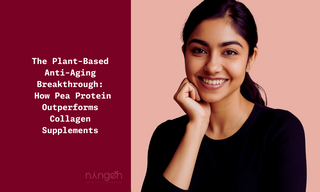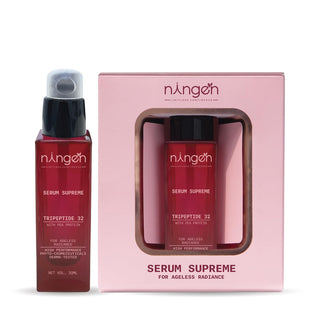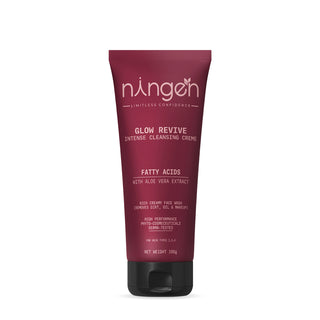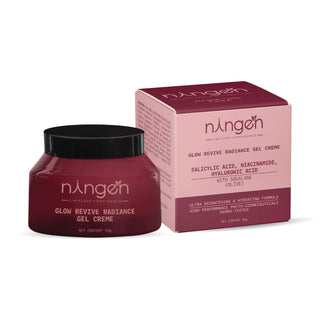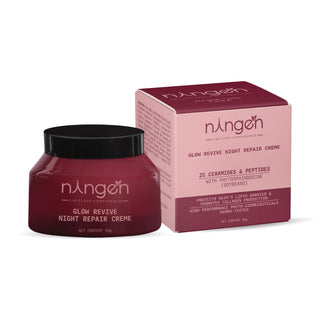Move over collagen – there's a new anti-aging champion in town, and it's green, powerful, and surprisingly effective.
TLDR: Pea protein is emerging as a potent anti-aging alternative to traditional collagen supplements. Rich in amino acids like lysine, proline, and glutamine, pea protein supports natural collagen production, reduces inflammation, and provides antioxidant benefits for healthier, younger-looking skin. Recent studies show it can enhance muscle protein synthesis in older adults and support skin repair at the cellular level.
Let's get straight to the point: the anti-aging industry is worth billions, and most of it centers around one ingredient – collagen. But here's what the marketing machine doesn't want you to know: your body might respond better to the building blocks that create collagen rather than consuming pre-made collagen itself.
Enter pea protein – the unsung hero that's quietly revolutionizing how we think about anti-aging nutrition. In this guide, we’ll discuss how pea protein outperforms collagen supplements. Let’s get started!
In this Article;
Why Collagen Supplements Aren't the Complete Answer?
The Science Behind Pea Protein's Anti-Aging Power
Why Collagen Supplements Aren't the Complete Answer?
Before we dive into pea protein's magic, let's address the elephant in the room. Collagen supplements have dominated the anti-aging space for years, and for good reason. Collagen can help improve skin elasticity and reduce wrinkles to slow the signs of visible aging, and research shows it can take up to eight weeks to see improvements.
But here's the catch: when you consume collagen, your digestive system breaks it down into individual amino acids. Your body then uses these amino acids to build whatever proteins it needs, not necessarily collagen for your skin.
This is where pea protein enters the conversation with a compelling proposition.

What is Pea Protein?
Pea protein is a high-quality, plant-based protein derived from yellow split peas. Commonly used in nutritional supplements and dairy alternatives, it is rich in essential amino acids, easily digestible, and free from major allergens such as dairy, soy, and gluten. Its sustainable cultivation also makes it an eco-friendly ingredient choice.
For skincare applications, the extraction process begins with cleaning and milling the peas into a fine powder. Through a method known as wet fractionation, the protein is separated from starch and fiber. The isolated protein is then filtered and gently dried to preserve its bioactive properties. In some cases, enzymatic or natural treatments are applied to break the protein into smaller peptides, enhancing skin absorption. The final result is a pure, functional ingredient that supports hydration, improves firmness, and strengthens the skin barrier—ideal for gentle, performance-driven skincare formulations.
Pea Protein Benefits as an Anti-Aging Skincare Ingredient
-
Stimulates Collagen Production
Pea protein contains amino acids such as lysine and proline—key building blocks of collagen. Collagen is essential for skin structure and elasticity, and its natural decline with age leads to sagging and wrinkles. Pea protein helps support the skin’s ability to synthesize collagen, promoting firmness and lift. -
Improves Skin Barrier Function
Studies show that proteins like those in peas help strengthen the skin’s lipid barrier, reducing transepidermal water loss (TEWL). A healthier barrier retains moisture more effectively, preventing dehydration—a major contributor to fine lines and dullness. -
Enhances Skin Smoothness and Hydration
Hydrolyzed pea protein acts as a humectant, drawing moisture into the skin. This leads to increased skin suppleness, improved texture, and a visibly plumper appearance. -
Supports Skin Regeneration
The peptides and amino acids derived from pea protein contribute to improved skin cell turnover and repair. This regenerative effect helps reduce the appearance of existing wrinkles and supports overall skin vitality. -
Gentle Yet Functional
Pea protein is naturally hypoallergenic and free from common irritants, making it suitable for sensitive or aging skin. Its biomimetic properties allow it to work in harmony with the skin’s own repair mechanisms without causing inflammation. -
Synergistic with Other Actives
Pea protein enhances the performance of antioxidant-rich and peptide-based skincare formulations, helping to fortify the skin’s defenses against oxidative stress and environmental aging.
The Science Behind Pea Protein's Anti-Aging Power
Pea protein isn't just a plant-based protein alternative – it's a carefully orchestrated symphony of amino acids that your body craves for cellular repair and regeneration.
Amino Acid Profile That Targets Aging
Pea protein provides the amino acids necessary for collagen production, such as lysine and proline, which are crucial building blocks for healthy skin structure. But that's just the beginning.
Recent research reveals that leucine, in conjunction with glycine and proline, improves fine lines and wrinkles, while lysine helps make skin firm by reinforcing its supportive elements. Pea protein delivers these amino acids in optimal ratios.
Anti-Inflammatory and Antioxidant Benefits
What sets pea protein apart is its dual-action approach. Clean Lean Protein is rich in amino acids like glutamine and other nutrients that support healthy skin and reduce inflammation, addressing one of the root causes of premature aging.
Pea protein's antioxidant properties can help combat oxidative stress, which is a significant factor in skin aging. This means you're not just supporting collagen production – you're actively protecting your existing collagen from damage.
[Image suggestion: Infographic showing the amino acid breakdown of pea protein vs. collagen supplements]
Recent Research: The Game-Changing 2024 Study
A groundbreaking 2024 study published in the American Journal of Clinical Nutrition compared pea protein directly to collagen in older adults. The research found that supplemental protein provided over the current RDA enhanced anabolic signaling and integrated muscle protein synthesis in older males, with the source of additional protein being an important consideration in overcoming age-related anabolic resistance.
This revolutionary study demonstrates that pea protein can effectively combat age-related muscle loss and protein synthesis decline, two key factors in aging beyond just skin appearance.
Pea Protein vs. Collagen: The Head-to-Head Comparison

How to Incorporate Pea Protein into Your Anti-Aging Routine?
Internal Consumption
-
Powder form: 20-30g daily in smoothies or shakes
-
Timing: Post-workout or between meals for optimal absorption
-
Combination: Pair with vitamin C-rich foods to enhance collagen synthesis
Topical Application
-
Look for serums containing pea peptides
-
Apply after cleansing, before moisturizer
-
Use consistently for 6-8 weeks to see visible results
The Sustainability Factor: Why It Matters for Your Skin
Here's something most people don't consider: chronic stress about environmental impact can accelerate aging through increased cortisol production. Choosing pea protein over traditional collagen sources can reduce your environmental anxiety while supporting your anti-aging goals.
Pea protein requires 98% less water to produce than beef protein and generates significantly fewer greenhouse gas emissions than marine collagen sources.
Expert Tips for Maximum Anti-Aging Benefits
-
Timing matters: Consume pea protein within 30 minutes post-exercise for enhanced muscle protein synthesis
-
Combine with healthy fats: Add avocado or nuts to improve absorption of fat-soluble vitamins
-
Stay hydrated: Proper hydration enhances protein utilization and skin plumpness
-
Be patient: Allow 8-12 weeks for visible skin improvements
-
Quality counts: Choose organic, non-GMO pea protein from reputable sources
Who Should Consider Pea Protein for Anti-Aging?
Pea protein anti-aging products are particularly beneficial for:
-
Vegans and vegetarians seeking collagen alternatives
-
Individuals with dairy allergies or lactose intolerance
-
People with sensitive skin are prone to inflammation
-
Those dealing with hormonal acne, as this plant-based option offers a safer alternative
-
Environmentally conscious consumers
-
Anyone seeking a complete amino acid profile for anti-aging
The Bottom Line: A New Era of Anti-Aging
The anti-aging game is changing — and pea protein is leading the way. While collagen still has its place, pea protein offers a smarter, plant-powered approach with all the essential amino acids your skin needs to repair, regenerate, and glow.
So, the real question isn’t if pea protein will take over — it’s when.
What do you think?
We’d love to hear your thoughts on this plant-powered shift in skincare. Have something to add or ask? Drop it in the comments — let’s start the conversation!
Frequently Asked Questions
Q1. How long does it take to see anti-aging results from pea protein?
Most people notice improvements in skin texture and energy levels within 4-6 weeks, with visible anti-aging benefits appearing after 8-12 weeks of consistent use.
Q2. Can pea protein completely replace collagen supplements for anti-aging?
Yes, pea protein can be an effective alternative as it provides the amino acids needed for natural collagen production, often with better bioavailability than collagen supplements.
Q3. What's the optimal daily dosage of pea protein for anti-aging benefits?
For anti-aging purposes, 20-30 grams daily is recommended, preferably split between morning and post-workout consumption.
Q4. Are there any side effects of using pea protein for anti-aging?
Pea protein is generally well-tolerated and hypoallergenic. Some people may experience mild digestive discomfort initially, which typically resolves within a few days.
Q5. How does pea protein compare to whey protein for anti-aging?
Pea protein offers similar muscle-building benefits with added anti-inflammatory properties and is suitable for those with dairy sensitivities, making it superior for comprehensive anti-aging.
Q6. Can I use pea protein topically and internally simultaneously?
Yes, combining internal pea protein supplementation with topical pea peptide products can enhance anti-aging results through multiple pathways.
Q7. Is pea protein effective for mature skin (50+ years)?
Absolutely. Recent studies show pea protein is particularly effective in older adults for combating age-related protein synthesis decline and supporting skin repair.
Q8. What should I look for when choosing a pea protein product for anti-aging?
Choose organic, non-GMO pea protein isolate with minimal additives, preferably from yellow peas, and ensure it contains a complete amino acid profile.
Q9. Can pea protein help with other signs of aging besides wrinkles?
Yes, pea protein supports muscle mass retention, bone health, and energy levels – all crucial factors in healthy aging beyond just skin appearance.
Q10. How does the cost of pea protein compare to collagen supplements?
Pea protein is generally 20-40% more cost-effective than premium collagen supplements while providing broader anti-aging benefits.
Authoritative Sources:
-
American Journal of Clinical Nutrition - Protein supplementation research
-
PubMed - Anti-aging protein studies
-
Cleveland Clinic - Pea protein nutritional benefits
-
Healthline - Evidence-based nutrition information
-
Journal of Cosmetics, Dermatological Sciences and Applications - Topical anti-aging research


